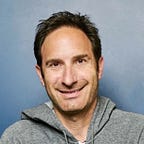How Much of Death/Aging is About Belief?
There is a species of jellyfish which is biologically immortal. Like humans it’s multicellular and reproduces sexually. Which makes me wonder, is there any reason in principle that humans must die of old age? Aubrey de Grey believes it is possible to end human biological aging, and he’s dedicated his life to that quest.
To me a really interesting question is how much of our natural biological aging (and death) is due to our beliefs about how old we will be when we die, and how vibrant (or not) we will be as we get close to that age?
Biological aging is affected by healthcare & lifestyle choices
“Many aspects had to change for life expectancy to double. It is helpful therefore to read our entries on all the many causes of death, from infectious diseases like smallpox and malaria to non-communicable diseases like cancer. Not just specific medical innovations, like vaccinations or antibiotics, were necessary, but also public health interventions — improved public sanitation and publicly funded healthcare — were crucial.” Our World in Data
The work on Blue Zones show that subpopulations both within and outside of modern industrialized societies can boost healthy aging and longevity significantly through lifestyle alone.
Our beliefs determine our healthcare & lifestyle choices
Amongst my aging relatives I notice a marked difference in their health even though they are roughly the same age. I don’t believe genetics play a huge role in this difference. I do however notice a big — but subtle and largely subconscious — difference in their beliefs about aging and how long they will have to live. The ones that see themselves dying sooner don’t take care of themselves, they socially isolate and they avoid going to the doctor and keeping up on the research about health and aging.
Our beliefs SOMEWHAT determine our biology
We know from the placebo effect that our thoughts invariably account for around 20% to 60% of any medical treatment. We also know how easy it is to get a false assumption in our heads and make it a self-fulfilling prophecy. For instance…
experts said for years that the human body was simply not capable of a 4-minute mile. It wasn’t just dangerous; it was impossible.
In the 1940’s, the mile record was pushed to 4:01, where it stood for nine years, as runners struggled with the idea that, just maybe, the experts had it right. Perhaps the human body had reached its limit.
On May 6, 1954, Roger Bannister broke the 4-minute barrier, running the distance in 3:59.4. As part of his training, he relentlessly visualized the achievement in order to create a sense of certainty in his mind and body.
Barely a year after Bannister’s accomplishment, someone else ran a mile in under 4 minutes. Then some more runners did. Now, it’s almost routine. Even strong high-schoolers today run 4-minute miles. [taken from here]
Is there a biological limit to the human lifespan?
What do you think? Is it possible that with the right medical advances and mindset humans can stop biological or reverse biological aging? And how much of aging is about belief?
